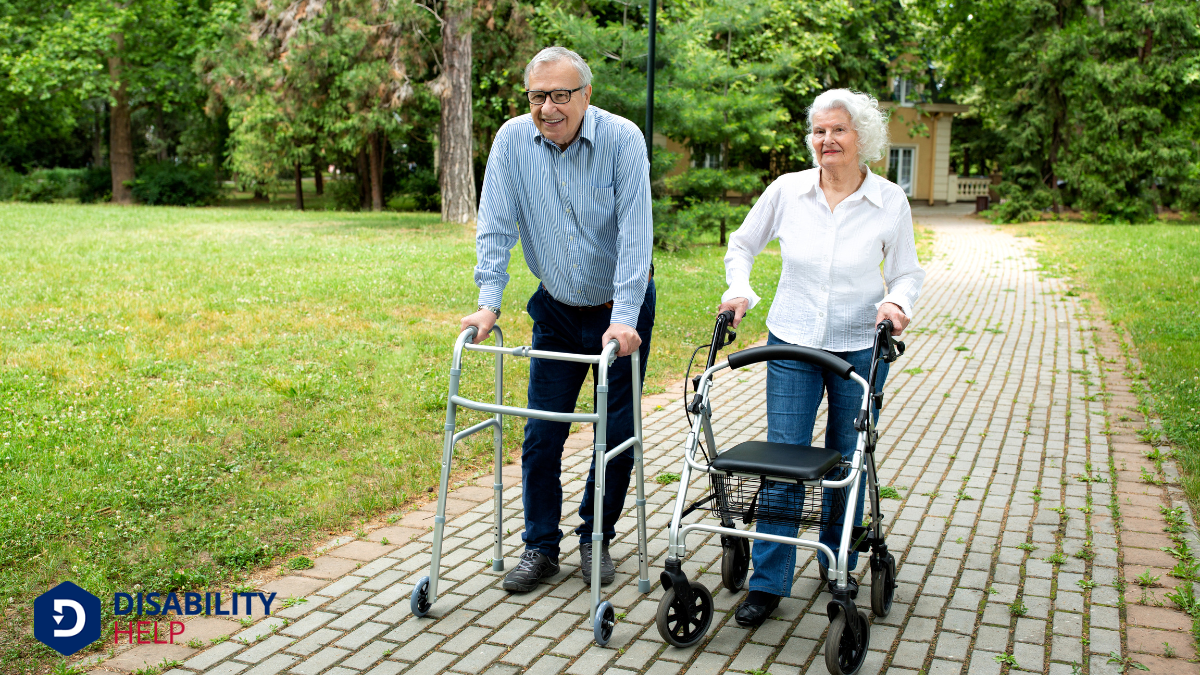Choosing the right walking aid can be a pivotal decision in maintaining our independence and safety. We should start by considering our specific mobility needs, balance, and strength challenges. But that's just the beginning. As we explore different types of aids and how they fit into our lifestyle, we might find the perfect match requires a bit more thought and guidance. How do we guarantee we're making the best choice for our unique situation?
Key Takeaways
- Identify your specific mobility challenges and whether they are temporary or long-term.
- Evaluate your balance and strength to determine necessary support level.
- Consider your daily activities and environmental needs, such as indoor versus outdoor mobility.
- Prioritize comfort and ergonomics, ensuring the aid is the correct height and weight.
- Consult healthcare professionals for personalized recommendations based on your medical history.
Assessing Your Mobility Needs
How do we determine the right walking aid for our needs? First, let's consider our mobility challenges. Are we dealing with temporary discomfort or a long-term condition? Understanding this helps us gauge the level of support we require.
Let's evaluate our balance and strength. Do we feel unsteady on our feet, or do we need help standingThe legal right to bring a lawsuit, which requires that the individual bringing the suit has a direc... up? These questions guide us in pinpointing specific areas where we need assistance.
Next, think about our daily activities. Do we often navigate stairs, or do we primarily move around on flat surfaces? Our environment plays a significant role in this decision.
Finally, involve healthcare professionals. They can offer valuable insights and recommendations based on our unique circumstances. By evaluating these factors, we guarantee our walking aid perfectly suits our needs.
Understanding Different Types of Walking Aids

When it comes to walking aids, understanding the different types available is essential for making an informed choice. We've several options to evaluate, each designed to meet specific needs.
Canes are great for mild balance issues, offering support and stability. They come in different styles, such as single-tip or quad-tip canes, providing varying degrees of support.
Walkers offer more support than canes and are ideal for those needing extra stability. Basic walkers require lifting to move forward, while wheeled walkers glide more smoothly.
Rollators, with their wheels and brakes, provide maximum mobility and often include a seat for resting. Crutches, on the other hand, are useful for temporary injuries, allowing us to keep weight off an affected leg.
Understanding these options helps us choose wisely.
Evaluating Your Lifestyle and Environment
Why is choosing the right walking aid dependent on our lifestyle and environment?
Let’s think about how often we move around each day and where we spend our time. If we're maneuvering crowded city streets, a lightweight, foldable caneA mobility aid used to assist with balance and walking. might suit us best. Those of us living in rural areas with uneven terrain might find that a sturdy walkerA mobility aid with a metal frame and sometimes wheels, used by individuals who need additional supp... offers the stability we need.
Additionally, consider our daily activities. Do we enjoy long walks in the park, or do we mainly need support indoors? If stairs are part of our routine, a walking aid that’s easy to lift becomes vital.
Don't forget the climate—rainy or icy conditions might require special tips to prevent slipping. Our unique lifestyle and environment play an important role in our decision.
Considering Comfort and Ergonomics
Choosing a walking aid isn't just about practicality; comfort and ergonomics are essential for our well-being. We need to guarantee that the aid fits us properly to prevent strain and discomfort.
Let’s consider the height of the device. It should allow our elbows to bend slightly when we grip it, maintaining a natural posture. A grip that's too hard or too soft can lead to hand fatigue, so it’s important to find one that feels just right.
Next, let’s think about the material and weight. Lightweight materials can make maneuvering easier without compromising stability. Padded handles might be more comfortable for prolonged use.
We should guarantee the walking aid accommodates our weight and supports our movement, enhancing both comfort and confidence.
Consulting With Healthcare Professionals

Before selecting a walking aid, it's essential we consult with healthcare professionals who can provide personalized advice. They understand our medical history and physical limitations, ensuring the walking aid fits our needs effectively.
By discussing our specific situation, healthcare professionals can recommend the most suitable type of aid, whether it's a cane, walker, or crutches.
We should ask questions about potential options and express any concerns we have. This collaboration helps us make informed decisions, avoiding common pitfalls like choosing an aid that's too heavy or inappropriate for our mobility level.
Additionally, professionals can guide us on proper use and maintenance, enhancing safety and longevity. Let's remember, their expertise is invaluable in finding the right support for our mobility and independence.
Conclusion
In summary, let's remember that choosing the right walking aid is about understanding our unique mobility needs and lifestyle. By evaluating our balance and strength challenges, reviewing our daily environments, and prioritizing comfort and ergonomics, we can make an informed decision. Don't forget to consult with healthcare professionals for personalized advice and proper use techniques. Together, we'll guarantee safety and enhance our independence, making every step a confident and comfortable one.






